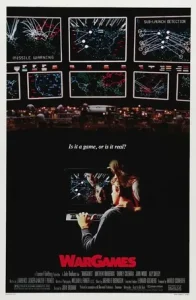Oppenheimer (2023)
5 min read
After all the hype and winning of oscars is over, the writer here thought it was time to actually sit through the monumental length of this winning epic from Christopher Nolan, and the question fo the day was, well, was then length worth it. In two words, sort of.
Nolan’s bio-pic, is three hours long and based on Kai Bird and Martin J. Sherwin’s Pulitzer-winning biography “American Prometheus,” charts the two main strands of Oppenheimer’s life: the scientific work that made his career and the leftist sympathies that, thanks to the country’s postwar anti-Communist crusade and the following cold war, were to prove his demise in society and science.
We meet Oppenheimer (played by Cillian Murphy) from the start of his career, as a student making his tour of science capitals of Europe, through Cambridge, Göttingen, Leiden—before returning to the US and taking up two jobs one at Caltech and Berkeley.
At Berkeley, he becomes a union organiser and donates to the anti-Fascist cause in the Spanish Civil War. (The money is conveyed via a Communist-affiliated group.) He hangs out with Communist Party members, including his brother Frank (Dylan Arnold), also a physicist, and Frank’s wife, Jackie (Emma Dumont). Although not himself a Party member, he is spied on by the F.B.I. He meets a Communist medical student named Jean Tatlock (Florence Pugh) and they begin an ill-fated relationship.
In 1942, General Leslie Groves (Matt Damon), who was in charge of the Army’s effort to develop the first US nuclear bomb, he comes to Oppenheimer to oversee the program. Suspicion clouds the scientist’s name but the General takes the bold step to vouch for him to bring, what he thinks, is the only real expert in the field onto this much needed project.
He proves himself a master not only of the scientific aspects of his assignment but also of its administrative and political. But, once the cold war kicks in in full and the, what is referenced ad Red Scare takes hold, his proximity to known Communists, and his postwar efforts to prevent a nuclear-arms race make him an easy target. (He was stripped of his security clearance in 1954.)
The movie is a bit of a mismatch really, the editor Jenniger Lame, cuts the various periods of his life together to tell the story as part of his end clearance interview. Following the chopping of Oppenheimer’s life—rise, struggle, fall, aftermath—continually connecting the early leftism and later pacifism with the tribulations during the McCarthy era. The editing and way this is pieced together does make this a bit of a harder watch, it can seem confusing at times but overall if you stick with it then it all does make sense, there are points where you really do get the feeling though that things are put in just for the shock value, until you watch the whole event to understand why it is really needed.
The crux of “Oppenheimer” is, of course, the tension between the blurring of lines of the physics and the brutality of actual war, the reaserch and project manager after the pure science but the reality that what they are producing is a weapon of war, hopefully to end war. the internal and scientific battle of words of the man whose work is directly responsible for the loss of hundreds of thousands of Japanese lives. Oppenheimer, who is Jewish as well as a leftist, fervently devotes himself to the creation of an atomic bomb because he knows that Nazi Germany is far ahead in developing one and he assumes that Hitler won’t hesitate to use it.
Once Germany surrenders—in May, 1945—he gets a shock: work on the bomb not only continues but accelerates. This mission from then poses a moral crisis for Oppenheimer that determines the course of the rest of the film, and of his life. It becomes clear that joining the Manhattan Project has left him tragically compromised, committed to creating a weapon of unparalleled destructiveness while having no say in how it will be used.
Then again, the film is so wanting to make him an icon of internal conflict that that it pays little attention to his character over all.
With all the historic facts throughout the movie, there There’s no glimpse of the ailing Oppenheimer, who was suffering from tuberculosis and joint pain even while running Los Alamos. It doesn’t help that Murphy portrays Oppenheimer as wraithlike and haunted, a cipher, a black hole of experience who bears his burdens blankly.
The performance, no less than the script, does make this a long watch, that in our opinion would make a good multi part history channel series which might you never know happen one day.
This moral reckoning is oddly underplayed in the dramatic action of the film, largely because of one specific aesthetic conceit of Nolan’s. After the bombing of Hiroshima and the horrific aftermath, Oppenheimer is brought to speak to a raucously triumphal assembly of Los Alamos employees. His speech betrays no misgivings, but, while he’s at the podium, Nolan shows what Oppenheimer imagines: overwhelming flashes of destruction, conflagrations that burn his audience to cinders. Representing conscience in this way, without script, enables Nolan to fill the screen with screen flashes that just seem there to shock rather than add to the movie itself.
The extended scenes of the closed-door security-committee hearing in which Oppenheimer’s political record and personal life are subjected to cruelly intrusive scrutiny come off as a scourging that he endures with a sense of self-punishment. Other scenes, of his persecutor Lewis Strauss (Robert Downey, Jr.), a Cabinet nominee, facing his own intrusive inquiries at a Senate committee hearing, evoke the Machiavellian realm of power into which Oppenheimer, naïvely confident in the wisdom of his mission, has ventured. Yet these notions, too, are unexplored from Oppenheimer’s own perspective. Rather than illuminating him or his times, the scenes seem pitched to spark post-screening debate, to seek an importance beyond the experiences and ideas of the characters.
It wouldn’t have taken a six-hour miniseries to show Oppenheimer from more angles and do justice to his range of character,
Overall the movie, while brilliant and indeed oscar worthy is slow, missing allot of what is known in history to the point of just missing the point, The story just seems incomplete, it is known what happened and yes the main story is told well, but there are just too many, what happened moments in this. It is indeed oscar worthy, but for the length and the cinematography it could have been so much better.
From the versions out in the world though, it would seem that the Imax version may actually be worth hunting out, nolan is known for his support of the format.
For once we can say, do give this one your time but make sure you have the time to spare and are prepared for the simple slowness of this feature.
4/5




